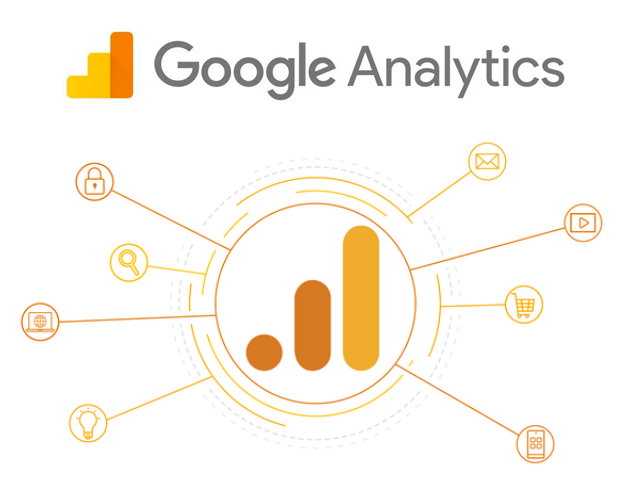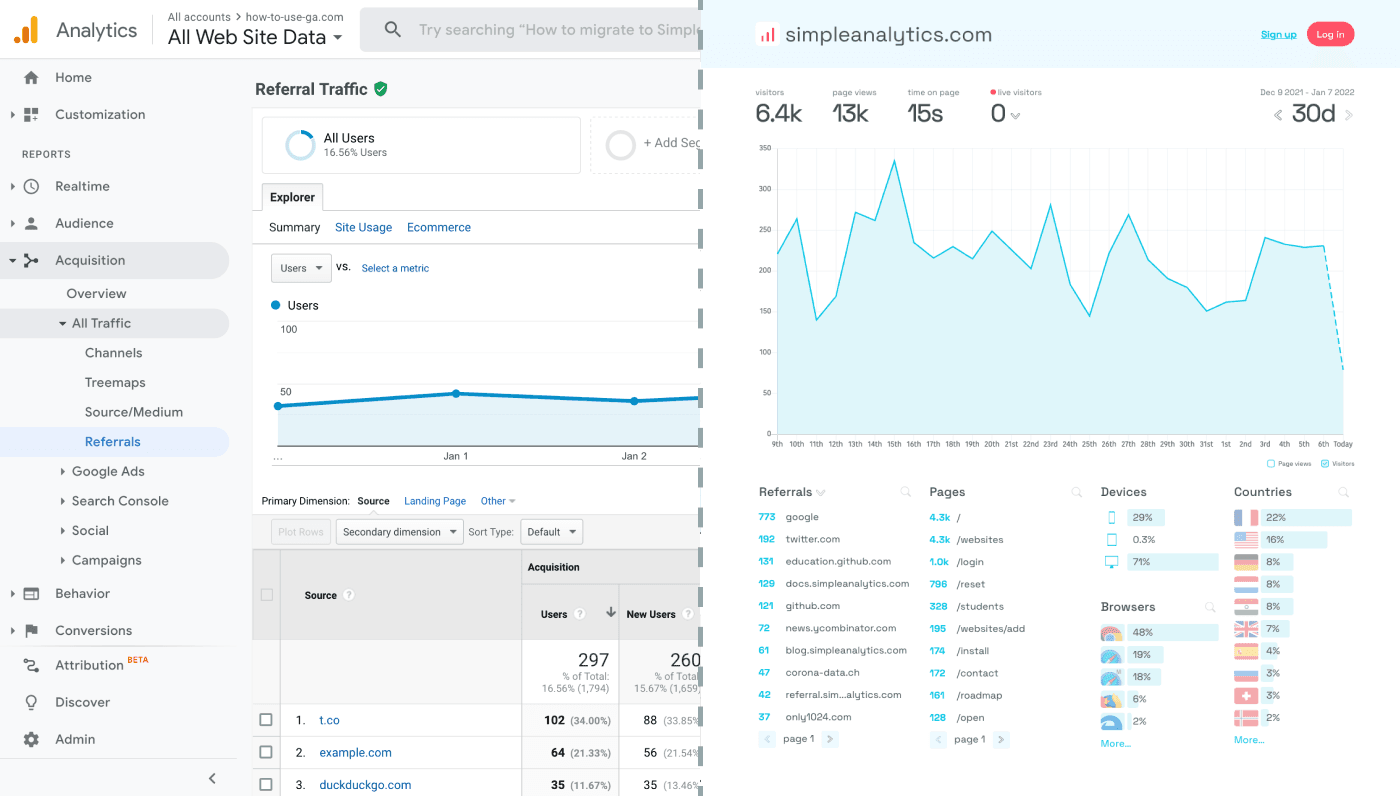When Does the Google Analytics Tracking Code Send an Event Hit to Analytics? Timing and Best Practices Explained
When Does the Google Analytics Tracking Code Send an Event Hit to Analytics? Timing and Best Practices Explained
Blog Article
Enhance Your SEO Method With Effective Google Analytics Monitoring Code
Integrating Google Analytics tracking code into your SEO method is a pivotal action towards attaining measurable results. What particular approaches can you take on to make best use of the effect of this data on your SEO efforts?

Comprehending Google Analytics Fundamentals
To properly utilize Google Analytics for SEO, it is necessary to grasp its foundational ideas. Google Analytics acts as a powerful device for monitoring and examining web site web traffic, giving insights that are important for maximizing internet search engine efficiency. At its core, the platform allows customers to keep an eye on customer behavior, website traffic sources, and essential performance indicators (KPIs) such as bounce prices and session durations.
Familiarity with the interface is vital. Secret areas consist of the Target market, Procurement, and Actions tabs, each providing important information. The Target market area provides group insights, assisting to customize content to target customers properly. The Procurement tab discloses just how site visitors reach the site, whether via organic search, paid advertisements, or social media, assisting strategic modifications in advertising initiatives.
Comprehending metrics such as natural web traffic volumes and conversion rates is vital for assessing search engine optimization performance. Eventually, grasping these essentials allows digital online marketers to harness the full possibility of Google Analytics, driving notified choices that enhance overall SEO techniques. By establishing a strong structure, businesses can efficiently assess their performance and recognize possibilities for improvement in their on-line visibility.
Setting Up Tracking Code
Appropriately establishing up the tracking code is important for precise data collection in Google Analytics. The initial step entails developing a Google Analytics account and property, where you will certainly obtain an one-of-a-kind monitoring ID. This ID is necessary for connecting your website's information to your Google Analytics account.
Once you have your monitoring ID, incorporate the tracking code snippet into your web site's HTML. This is generally put in the header section of each page to guarantee it loads early in the web page providing procedure. If you're utilizing a Web content Management System (CMS) like WordPress, several plugins simplify this procedure, enabling you to include the monitoring code without direct HTML editing.
After executing the monitoring code, it is vital to evaluate its capability. You can utilize the Google Tag Assistant device to confirm if the monitoring code is appropriately installed and working. Furthermore, keep an eye on the real-time coverage feature in Google Analytics to confirm that data is being collected appropriately.
Guaranteeing that the tracking code is effectively set up lays the structure for reliable information analysis, enabling you to make informed decisions to improve your SEO technique and total internet site efficiency.
Secret Metrics to Monitor
Recognizing essential metrics to monitor is essential for understanding the efficiency of your search engine optimization technique with Google Analytics. By concentrating on particular data factors, you can determine the effect of your optimization efforts and make informed decisions to boost performance.
Among the primary metrics to track is organic website traffic, which suggests the variety of visitors reaching your site with internet search engine. this link This statistics mirrors the general health of your search engine optimization technique. Next off, monitor the bounce price, which reveals the portion of visitors who leave your site after watching just one page. A high bounce rate may indicate that your web content is not satisfying individual expectations or that your landing web pages require renovation.
Keyword rankings are likewise critical; tracking adjustments in keyword positions assists assess the performance of your targeted Search engine optimization efforts. By carefully following these crucial metrics, you can acquire beneficial insights into your Search engine optimization strategy's performance and recognize locations for improvement.
Analyzing User Habits
Recognizing user behavior is vital for fine-tuning your SEO method and making best use of website performance. Google Analytics provides a wealth of information on user involvement metrics, such as bounce prices, time on site, and web page sights per session.
Additionally, tracking individual flow can expose common navigation paths, highlighting prospective bottlenecks or areas for enhancement. Recognizing the demographics, passions, and geographic areas of your site visitors allows for even more tailored content that speaks with their demands. Utilizing division functions in Google Analytics further improves your ability to examine individual habits by allowing you to compare different target market groups.
Additionally, monitoring conversion prices and individual actions can provide insights right into the efficiency of your phone call to activity and general site style. This all natural view of customer actions is essential for making notified choices that enhance individual experience and drive higher engagement, inevitably adding to improved SEO performance.
Leveraging Insights for Search Engine Optimization
Regularly leveraging insights acquired from customer actions analysis can substantially improve your SEO initiatives. By utilizing Google Analytics, you can identify essential metrics such as bounce rates, session duration, and customer flow, which expose just how visitors engage with your web content. These insights allow you to determine locations requiring enhancement, such as high leave pages or underperforming search phrases.

Additionally, tracking organic web traffic sources supplies quality on which networks are most efficient, enabling you to designate resources strategically (when does the google analytics tracking code send an event hit to analytics?). By assessing conversion rates alongside website traffic data, you can recognize which web pages drive real organization results, improving your search engine optimization technique further
Incorporating these understandings right into your material strategy not only enhances presence but also cultivates a much more user-centric technique. Eventually, a data-driven SEO technique informed by analytics not just increases rankings but likewise straightens your objectives with individual assumptions, bring about continual development and interaction.
Conclusion
Reliable execution of Google i loved this Analytics tracking code substantially boosts a search engine optimization technique by giving essential insights right into individual actions and website traffic sources. Monitoring crucial metrics such as natural traffic, bounce prices, and conversion prices promotes the recognition of enhancement locations. Furthermore, analyzing user demographics and involvement metrics permits an extra targeted material approach. Eventually, leveraging these understandings contributes to fine-tuning search engine optimization efforts, driving more pertinent website traffic, and enhancing overall web site efficiency.
Including Google Analytics tracking code into your Search engine optimization technique is a pivotal step toward accomplishing measurable outcomes. At its core, the system makes it possible for users to keep track of customer actions, web traffic sources, and vital performance indications (KPIs) such as bounce rates and session durations.
Comprehending user actions is crucial for refining your Search engine optimization method and optimizing site performance.Regularly leveraging understandings acquired from customer habits analysis can substantially boost your SEO initiatives.Effective execution of Google Analytics tracking code dramatically improves a SEO approach by providing important understandings into user habits and website traffic sources.
Report this page